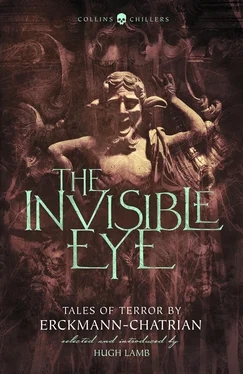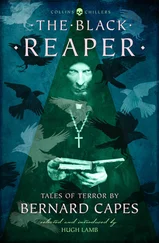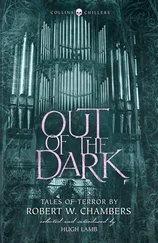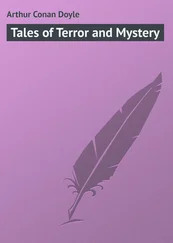‘Such chambers!’ he cried, stammering with terror; ‘it’s – it’s murdering people to put them into such! – you – you deserve to be sent to the galleys!’
‘Come, come calm yourself,’ said the landlord; ‘you slept there comfortably enough last night.’
‘Thank Heaven! I said my prayers before going to rest, or where should I be now?’
And he hurried away, raising his hands to heaven.
‘Well,’ said Master Schmidt, stupefied, ‘the chamber is empty, but don’t go into it to do me an ill turn.’
‘I might be doing myself a much worse one,’ I replied.
Giving my parcel to the servant-girl, I went and seated myself among the guests who were drinking and smoking.
For a long time I had not felt more calm, more happy to be in the world. After so much anxiety, I saw approaching my end – the horizon seemed to grow lighter. I know not by what formidable power I was being led on. I lit my pipe, and with my elbow on the table and a jug of wine before me, and sometimes rousing myself to look at the woman’s house, I seriously asked myself whether all that had happened to me was more than a dream. But when the watchman came, to request us to vacate the room, graver thoughts took possession of my mind, and I followed, in meditative mood, the little servant-girl who preceded me with a candle in her hand.
III
We mounted the window flight of stairs to the third storey; arrived there, she placed the candle in my hand, and pointed to a door.
‘That’s it,’ she said, and hurried back down the stairs as fast as she could go.
I opened the door. The green chamber was like all other inn bedchambers; the ceiling was low, the bed was high. After casting a glance round the room, I stepped across to the window.
Nothing was yet noticeable in Fledermausse’s house, with the exception of a light, which shone at the back of a deep obscure bedchamber – a nightlight, doubtless.
‘So much the better,’ I said to myself, as I re-closed the window-curtains; ‘I shall have plenty of time.’
I opened my parcel, and from its contents put on a woman’s cap with a broad frilled border; then, with a piece of pointed charcoal, in front of the glass, I marked my forehead with a number of wrinkles. This took me a full hour to do; but after I had put on a gown and a large shawl, I was afraid of myself; Fledermausse herself was looking at me from the depths of the glass!
At that moment the watchman announced the hour of eleven. I rapidly dressed the dummy I had brought with me like the one prepared by the old witch. I then drew apart the window-curtains.
Certainly, after all I had seen of the old woman – her infernal cunning, her prudence, and her address – nothing ought to have surprised even me; yet I was positively terrified.
The light, which I had observed at the back of her room, now cast its yellow rays on her dummy, dressed like the peasant of Nassau, which sat huddled up on the side of the bed, its head dropped upon its chest, the large three-cornered hat drawn down over its features, its arms pendant by its sides, and its whole attitude that of a person plunged in despair.
Managed with diabolical art, the shadow permitted only a general view of the figure, the red waistcoat and its six rounded buttons alone caught the light; but the silence of night, the complete immobility of the figure, and its air of terrible dejection, all served to impress the beholder with irresistible force; even I myself, though not in the least taken by surprise, felt chilled to the marrow of my bones. How, then, would a poor countryman taken completely off his guard have felt? He would have been utterly overthrown; he would have lost all control of will, and the spirit of imitation would have done the rest.
Scarcely had I drawn aside the curtains than I discovered Fledermausse on the watch behind her window-panes.
She could not see me. I opened the window softly, the window over the way softly opened too; then the dummy appeared to rise slowly and advance towards me; I did the same, and seizing my candle with one hand, with the other threw the casement wide open.
The old woman and I were face to face; for, overwhelmed with astonishment, she had let the dummy fall from her hands. Our two looks crossed with an equal terror.
She stretched forth a finger, I did the same; her lips moved, I moved mine; she heaved a deep sigh and leant upon an elbow. I rested in the same way.
How frightful the enacting of this scene was I cannot describe; it was made up of delirium, bewilderment, madness. It was a struggle between two wills, two intelligences, two souls, one of which sought to crush the other; and in this struggle I had the advantage. The dead were on my side.
After having for some seconds imitated all the movements of Fledermausse, I drew a cord from the folds of my petticoat and tied it to the iron stanchion of the signboard.
The old woman watched me with open mouth. I passed the cord round my neck. Her tawny eyeballs glittered; her features became convulsed.
‘No, no!’ she cried, in a hissing tone; ‘no!’
I proceeded with the impassibility of a hangman.
Then Fledermausse was seized with rage.
‘You’re mad! you’re mad!’ she cried, springing up and clutching wildly at the sill of the window; ‘you’re mad!’
I gave her no time to continue. Suddenly blowing out my light, I stooped like a man preparing to make a vigorous spring, then seizing my dummy slipped the cord about its neck and hurled it into the air.
A terrible shriek resounded through the street; then all was silent again.
Perspiration bathed my forehead. I listened a long time. At the end of an hour I heard far off – very far off – the cry of the watchman, announcing that midnight had struck.
‘Justice is at last done,’ I murmured to myself; ‘the three victims are avenged. Heaven forgive me!’
I saw the old witch, drawn by the likeness of herself, a cord about her neck, hanging from the iron stanchion projecting from her house. I saw the thrill of death run through her limbs and the moon, calm and silent, rose above the edge of the roof, and shed its cold pale rays upon her dishevelled head.
As I had seen the poor young student of Heidelberg, I now saw Fledermausse.
The next day all Nuremberg knew that ‘the Bat’ had hung herself. It was the last event of the kind in the Rue des Minnesängers.
On a warm evening in July 1835, Kasper Boeck, a shepherd of the small village of Hirchwiller, presented himself before the burgomaster, Pétrus Mauerer, who had just finished his supper and was having a glass of Kirsch to help his digestion.
The burgomaster, tall and wiry, with his upper lip covered with a huge grey moustache, had in days gone by served in the armies of the arch-duke Charles. His was a bantering disposition, he had the village under his thumb, it was said, and ruled it with a rod of iron.
‘Mr Burgomaster!’ exclaimed the shepherd.
But Pétrus Mauerer, without waiting for the end of his speech, frowned and said to him: ‘Kasper Boeck, start by removing your hat, remove your dog from the room, and then speak clearly, intelligibly, without stammering, so that I can understand you.’
Kasper took out his dog and returned with his hat off.
‘Ah well!’ said Pétrus, seeing him silent. ‘What’s going on?’
‘What’s going on is that the “ghost” has appeared again in the ruins of Geierstein!’
‘Ah! I suspected it. Did you get a good look at it?’
‘Very good, Mr Burgomaster.’
‘Without shutting your eyes?’
‘Yes, Mr Burgomaster. I had my eyes wide open. It was a fine moonlit night.’
‘What shape did it have?’
‘That of a small man.’
Читать дальше












